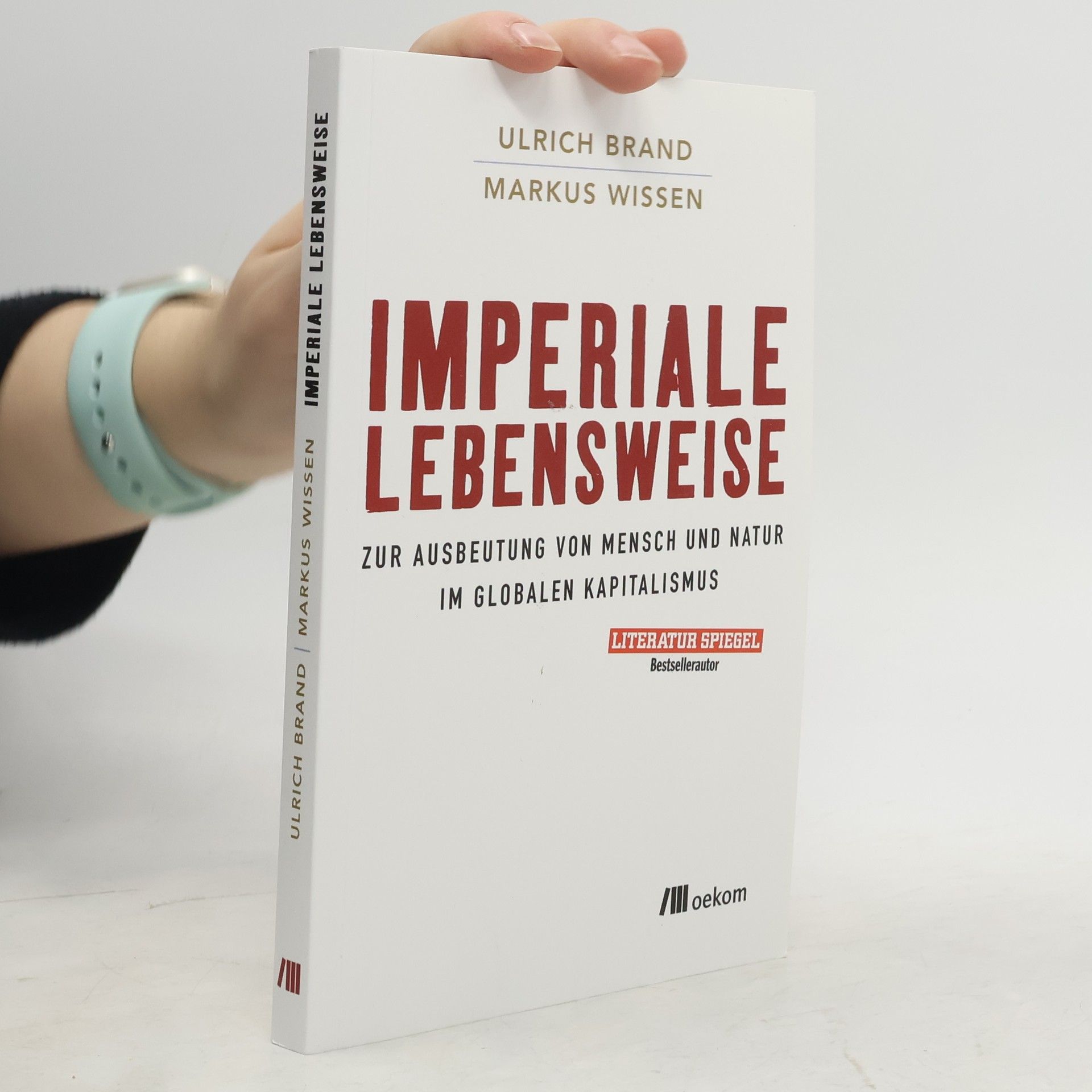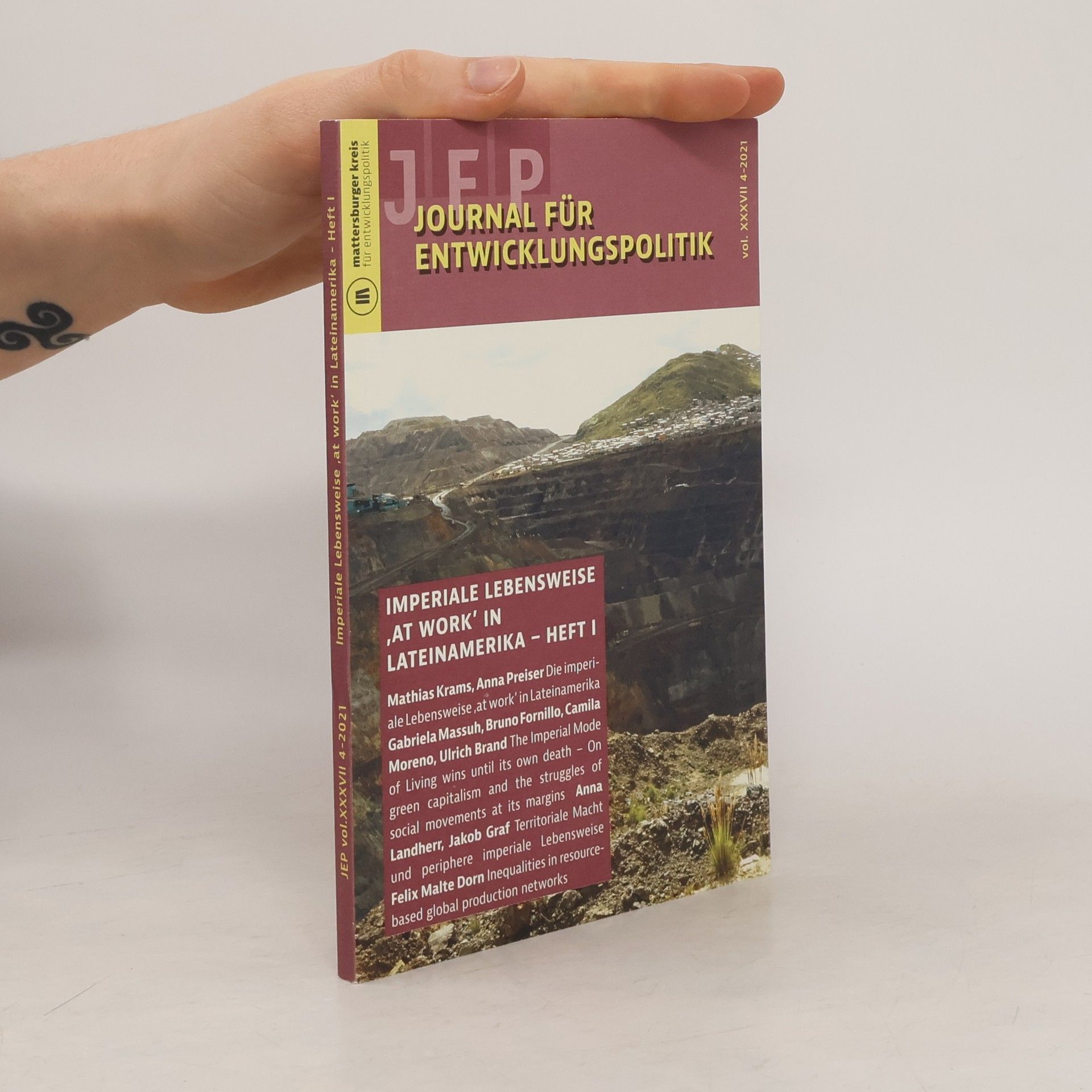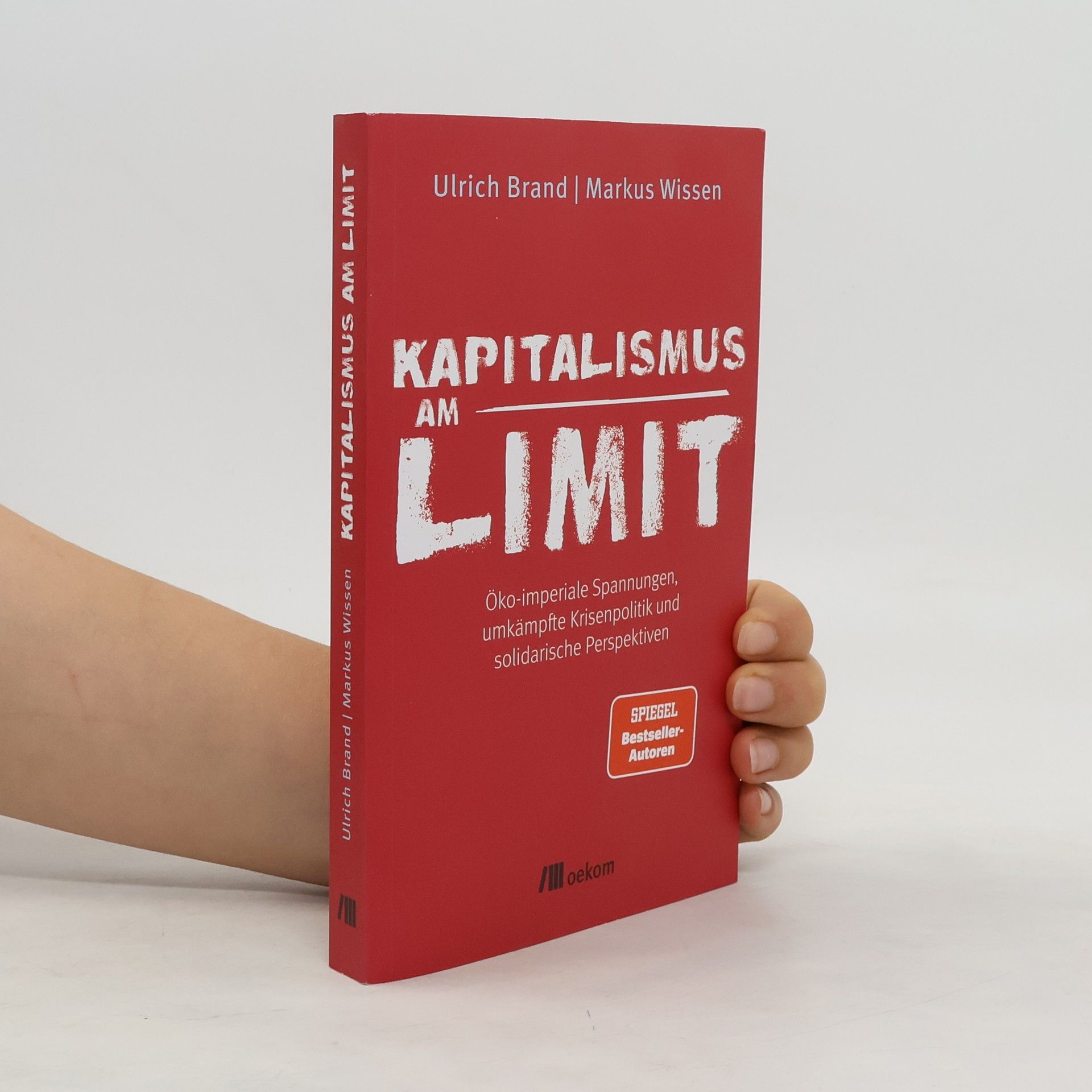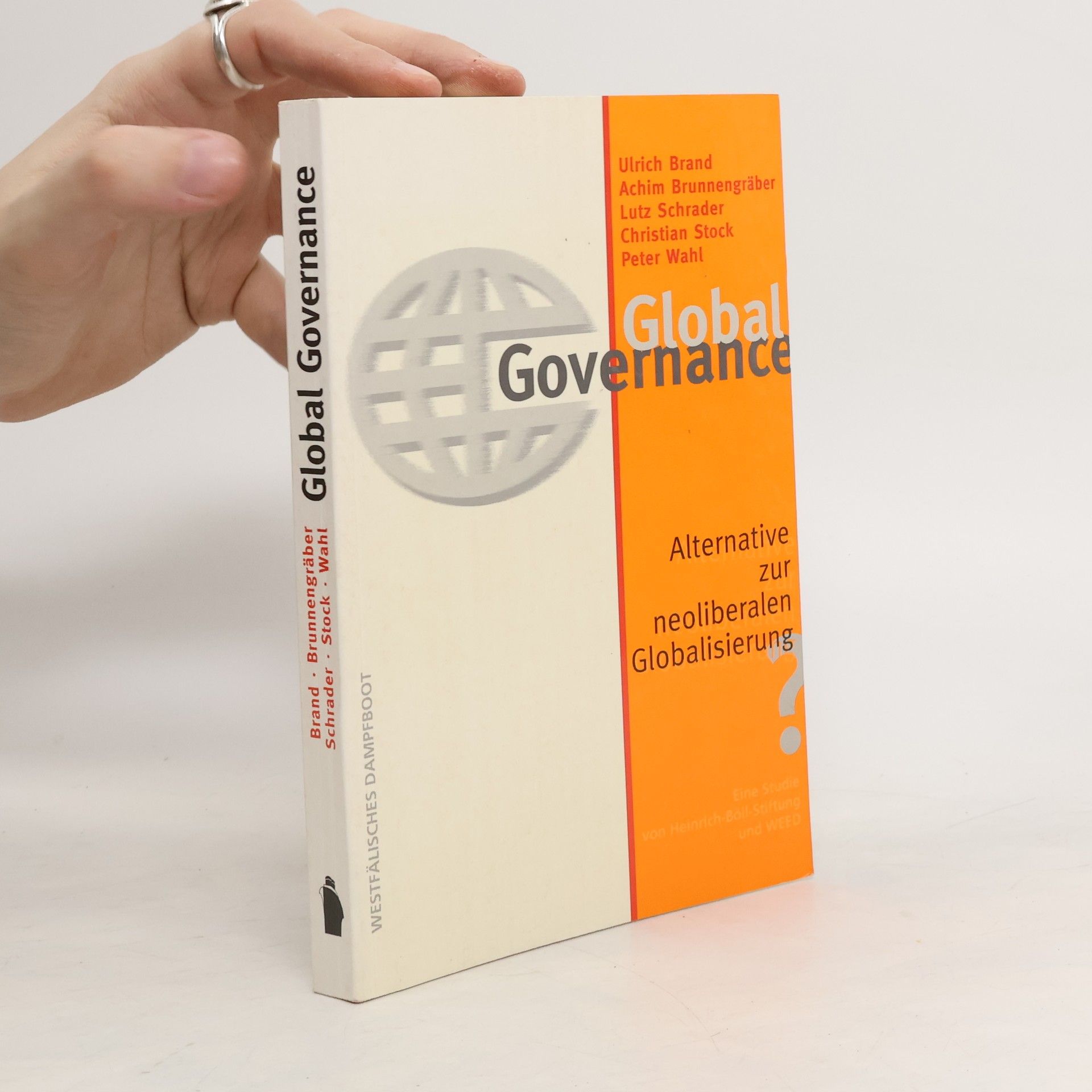Brand and Wissen highlight the fact that capitalism implies uneven development, as well as a constant and accelerating universalisation of a Western mode of production and living. The logic of liberal markets since the 19th century, and especially since World War II, has been inscribed into everyday practices that are usually unconsciously reproduced. The authors show that these practices are a main driver of the ecological crisis and economic and political instability. The book also implies that people's everyday practices, including individual and societal orientations and identities, rely heavily on the unlimited appropriation of resources; a disproportionate claim on global and local ecosystems and sinks; and cheap labour from elsewhere. This availability of commodities is largely organised through the world market, backed by military force and/or the asymmetric relations of forces as they have been inscribed in international institutions. Moreover, the 'Imperial Mode of Living' implies asymmetrical social relations along class, gender and race within the respective countries. Here too, it is driven by the capitalist accumulation imperative, growth-oriented state policies and status consumption
Ulrich Brand Livres






Journal für Entwicklungspolitik - 37, 4-2021: Imperiale Lebensweise 'at work' in Lateinamerika - Heft 1
- 96pages
- 4 heures de lecture
Imperiale Lebensweise
Zur Ausbeutung von Mensch und Natur im globalen Kapitalismus. Globale Auswirkungen verstehen, Kapitalistische Praktiken und ihre Alternativen
Imperialismus? Haben wir den nicht längst hinter uns gelassen? Bedenkt man, in welchem Maße sich der globale Norden nach wie vor an den sozialen und ökologischen Ressourcen des globalen Südens bedient, rücken die Begriffe »globaler Kapitalismus« und »Imperialismus« immer näher zusammen. Unsere Produktions- und Konsumweise setzt einen überproportionalen Zugriff auf Ressourcen, Arbeitskraft und biologische Senken im globalen Maßstab voraus. Mit anderen Worten: Die Ausbeutung von Mensch und Natur hält nach wie vor an – und vertieft sich sogar. Die Autoren legen eine umfassende Krisenbeschreibung vor, die zeigt, wie inadäquat die aktuellen, oft technischen und markt-förmigen Problemlösungsstrategien sind. Das Buch erinnert eindringlich daran, wie notwendig eine umfassende »sozial-öko-logische Transformation« hin zu einer solidarischen Lebensweise ist und wie man ihr den Weg ebnen kann.
Imperiální způsob života
- 412pages
- 15 heures de lecture
Ulrich Brand a Markus Wissen ve svém konceptu imperiálního způsobu života poukazují na to, že kapitalismus přináší nerovnoměrný rozvoj a zrychlující se univerzalizaci západního způsobu výroby a života. Logika liberálních trhů, od devatenáctého století a zejména po druhé světové válce, se stala součástí každodenní praxe, která je často nevědomě reprodukována. Autoři argumentují, že tento způsob života je klíčovým faktorem ekologické krize a politické i ekonomické nestability. Imperiální způsob života zahrnuje každodenní praxi lidí, která se opírá o neomezené přivlastňování zdrojů a neúměrné nároky na ekosystémy a levnou pracovní sílu. Tato dostupnost komodit je organizována prostřednictvím světového trhu, podporovaného vojenskou silou a asymetrickými mocenskými vztahy v mezinárodních institucích. Dále implikuje nerovné sociální vztahy na základě třídy, pohlaví a rasy, poháněné kapitalistickou akumulací a politikou orientovanou na růst. Podmínky výroby zboží zůstávají v místech spotřeby neviditelné. Imperialistický světový řád se normalizuje prostřednictvím tohoto způsobu výroby a života. Nicméně, imperiální způsob života není nevyhnutelný; je to lidský výtvor, který lze změnit a má alternativu: solidární způsob života.
Post-Wachstum und Gegen-Hegemonie
Klimastreiks und Alternativen zur imperialen Lebensweise Mit einem Beitrag zur Corona-Krise
In diesem Buch geht Ulrich Brand der Frage nach, was heute getan werden kann, damit gesellschaftliches Leben, Arbeit, soziale Institutionen und Infrastrukturen, Demokratie und Staat sowie das Verhältnis zwischen Gesellschaft und Natur dauerhaft und weltweit zukunftsfähig werden. Dabei geht er auch auf jüngere Erfahrungen in Lateinamerika ein. Angesichts der weltweiten Herausforderungen im Frühjahr 2020 fragt er darüber hinaus: Wie sähe eine linke Politik in Zeiten der Corona-Krise aus, aber auch gegen einen sich möglicherweise verfestigenden autoritären Grünen und "Corona-Kapitalismus", in dem die Tendenzen von Ungleichheit, Naturzerstörung und Autoritarismus fortgeschrieben werden? Wie kann die gesellschaftliche Öffnung, die in der Krise plötzlich bisher Undenkbares möglich macht, genutzt werden, um für eine gerechtere, demokratischere, aber vor allem für eine Gesellschaft zu streiten, die auch künftigen Generationen ein erfülltes Leben auf unserem Planeten ermöglicht? Welche Rolle spielen dabei die internationale Politik und andere Weltregionen. Quelle: Klappentext
Sackmann - das Lehrbuch für die Meisterprüfung Teil 4
- 377pages
- 14 heures de lecture
Kapitalismus am Limit
Öko-imperiale Spannungen, umkämpfte Krisenpolitik und solidarische Perspektiven. Von den Autoren des Bestsellers »Imperiale Lebensweise«. Herausforderungen und Chancen der Krise
Wir befinden uns in einer seltsamen Zwischenzeit: Die meisten von uns haben sich eingestanden, dass es so nicht weitergehen kann, aber echte Lösungen scheinen in weiter Ferne. Es ist eine Zeit, in der »das Alte stirbt und das Neue nicht zur Welt kommen kann« (Gramsci), geprägt von Kämpfen zwischen den Aktivistinnen des Wandels und den Verteidigern des Status quo. Ulrich Brand und Markus Wissen unterziehen diese Gegenwart einer kritischen Diagnose. Sie zeichnen nach, wie die Herrschaft der imperialen Lebensweise bröckelt, angegriffen von unübersehbaren Umweltkrisen, aber auch von denjenigen, die die Ausbeutung von Mensch und Natur nicht länger mittragen wollen. Diese Kämpfe entscheiden die Zukunft der Menschheit, und der Ausgang ist alles andere als gewiss. Wird der Status quo verteidigt und nehmen damit autoritäre Tendenzen zu? Werden wir einen »grünen Kapitalismus« entwickeln, und welche Folgen hätte dieser für den Rest der Welt? Oder finden wir in eine gerechtere, bessere Art des Lebens? Ein hellsichtiger Blick auf die großen Konflikte der Gegenwart.



